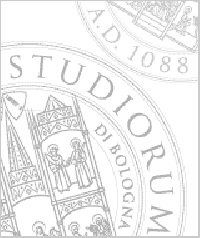
Parallel and Distributed Simulation (PADS) Research Group
University of Bologna. Department of Computer Science and Engineering (DISI)
Welcome to the PADS homepage, you can find some information about this research group, the active projects and the related publications.
A lot of our research work is based on a new Parallel and Distributed Simulation (PADS) middleware (ARTÌS). The GAIA framework provides a migration-based approach to the simulation. The ARTÌS middleware and the GAIA framework are available for educational and research purposes.
Please feel free to contact us for any question or comment.
NEW PAPER: Performance evaluation of a self-clustering heuristic for adaptive PADS
Parallel And Distributed Simulation (PADS) is a well known modeling paradigm that allows efficient implementation of large simulation models as a collection of interacting entities, called Simulated Entities (SEs). SEs can then be assigned to independent execution units for parallel execution, if possible. Allocating SEs to execution units is one of the most challenging problems in PADS: ideally, highly interacting SEs should be placed on the same execution unit so that all communications are local; however, placing too many SEs on the same processor might degrade performance. Furthermore, many simulation models exhibit non-uniform computation and communication patterns among components, that might change during execution at unpredictable times. In this paper we propose a clustering heuristic that exploits communication locality, with the aim to reduce the communication cost experienced by the PADS during the execution. The heuristic adapts automatically to changing interaction patterns by migrating SEs, and can do so without any user-visible modification of the simulation model; there are, however, some parameters that can be used to tune the heuristic. We perform a large set of computational experiments to assess the effectiveness of the heuristic on a real-world scenario, with the aim of guiding the users in selecting optimal values of the heuristic parameters.
For more information follow this link.
NEW PAPER: A Review of Multilevel Modeling and Simulation for Human Mobility and Behavior
In this paper we perform a systematic literature review of multilevel simulation applied to human mobility and behavior, to identify research trends and contribute towards a better understanding of techniques, methodologies and terminology used within this research area. At the end of our analysis we uncover some recurrent modeling and simulation patterns that appear frequently within specific research areas, and we classify these methodological patterns along several dimensions such as modeling type and level of detail.
For more information follow this link.